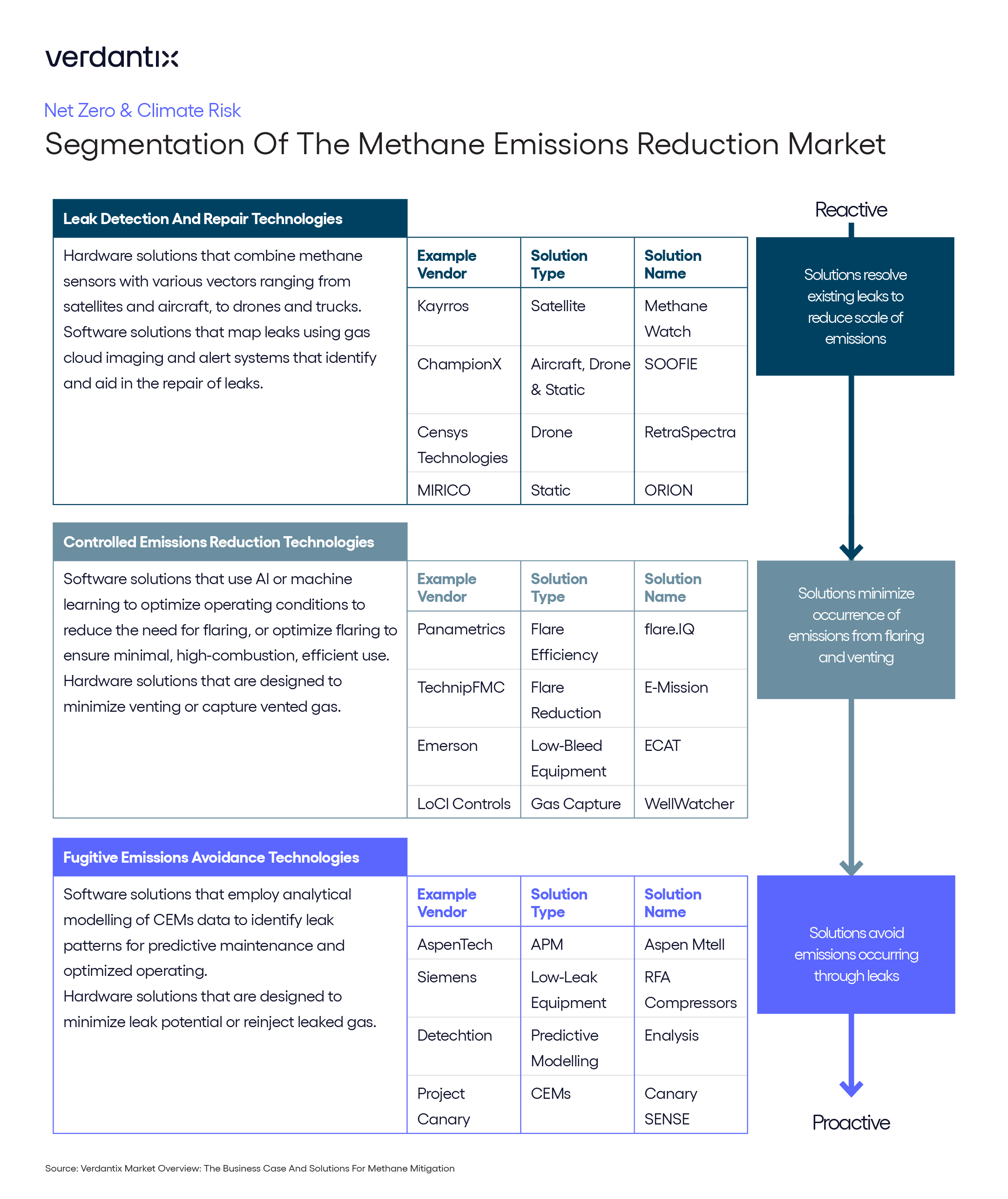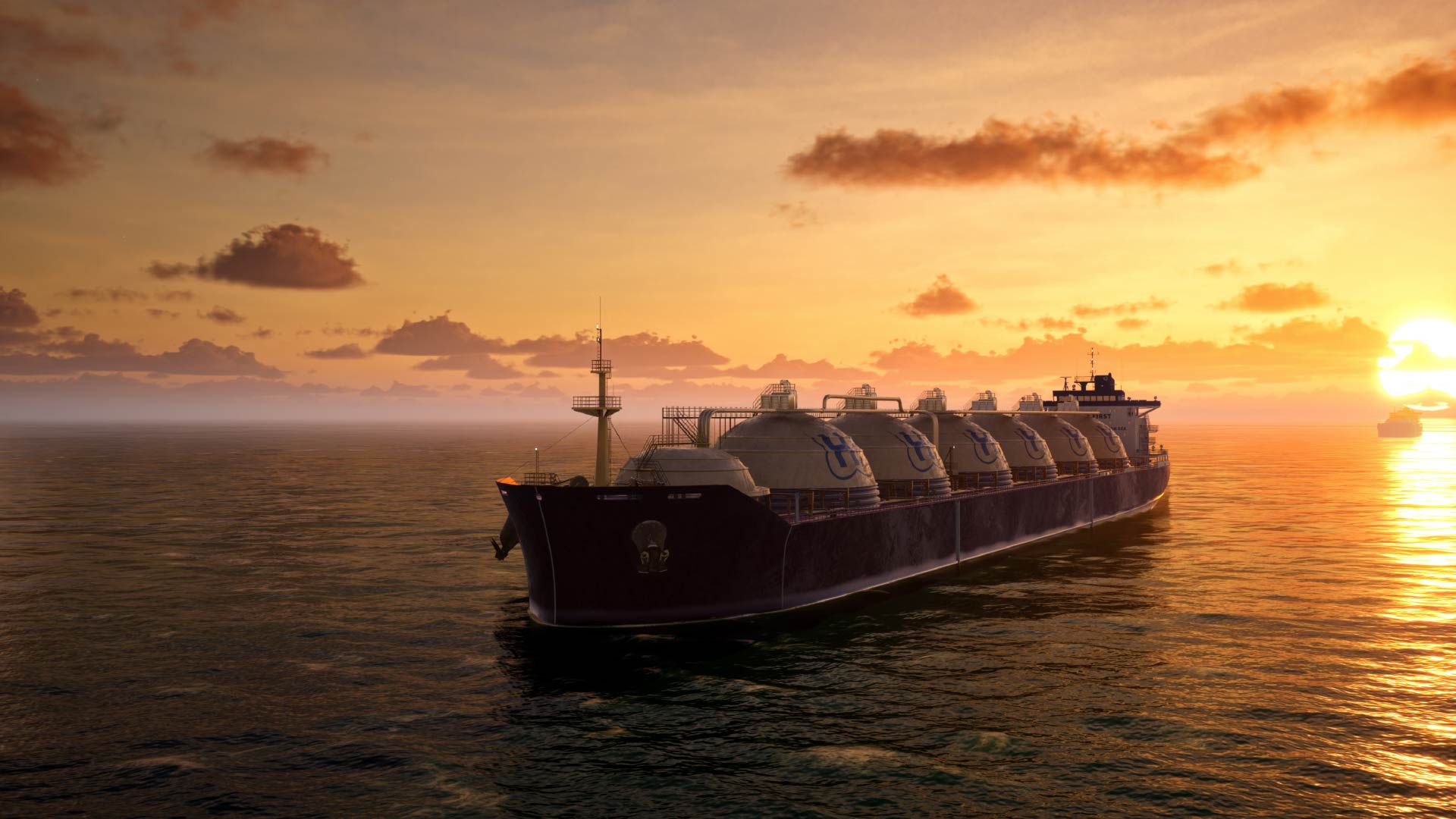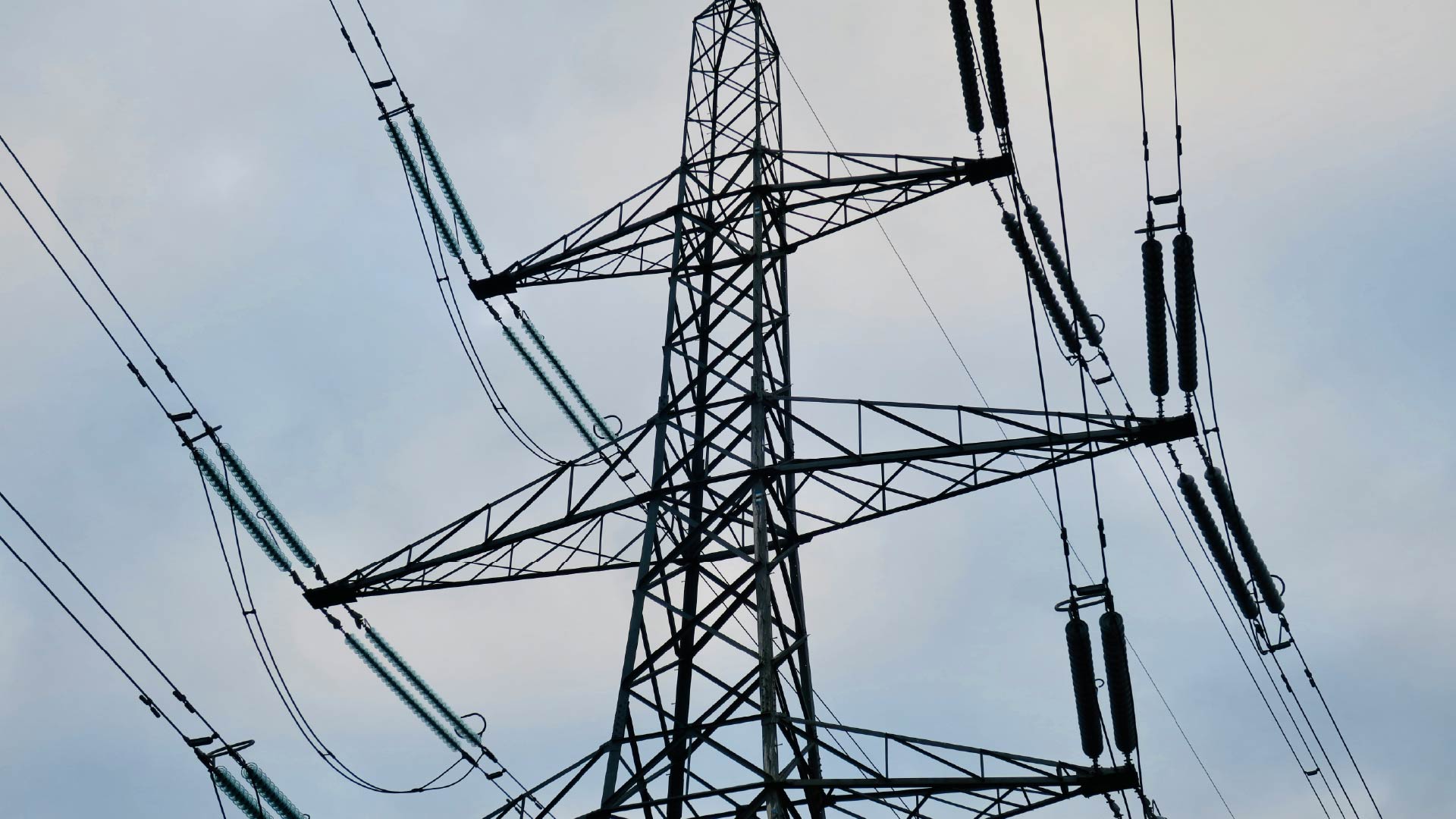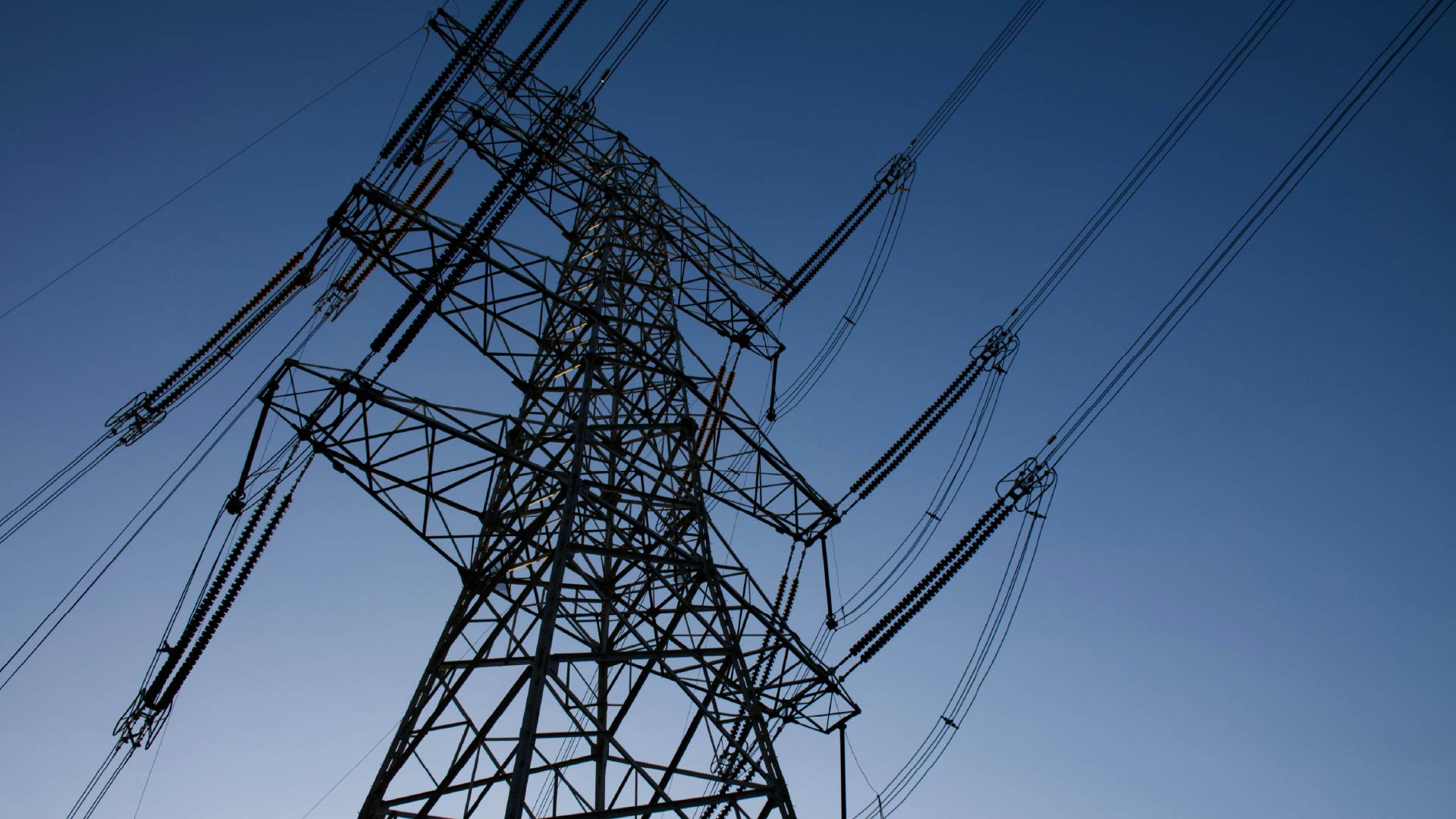Methane Mitigation Shifts From Reactive To Proactive Technologies

Alastair Foyn
The latest annual reports from Shell, BP and TotalEnergies mentioned “methane” 21, 47, and 71 times respectively; you could say methane mitigation is a hot topic in the oil and gas business. Consequently, there is an expanding ecosystem of solutions servicing the oil and gas industry. Verdantix segments this ecosystem into three technology categories: leak detection and repair (LDAR), controlled emissions reduction, and fugitive emissions avoidance.
Leak detection and repair (LDAR) is the largest and most mature technology category of the three. Here, initial low-tech solutions are being replaced by more innovative sensor solutions capable of greater accuracy and precision, as well as remote satellite-based monitoring from an array of firms, NGOs and initiatives.
However, the two smaller market categories are becoming increasingly popular for their more proactive approach to methane emission mitigation. Controlled emissions reduction and fugitive emissions avoidance technologies seek to prevent or minimize methane emissions sources before they occur (as opposed to LDAR technologies which take a reactive approach). These smaller market segments have commercial advantages over LDAR technologies, in that they:
- Prevent methane emissions
- Optimize operational performance
- Minimize facility downtime
- Boost production output
- Reduce safety incidents
For example, when equipment fails, facilities must shut down and flare excess gas to prevent potentially explosive pressure increases. These periods of transient operations reduce production and are responsible for 50% of safety incidents – despite only accounting for 10% of a facility’s lifetime. Therefore, solutions that prevent failures are mutually beneficial and more likely to receive buy-in from multiple business functions.
For more detail, see Verdantix Market Overview: The Business Case And Solutions For Methane Mitigation.

About The Author

Alastair Foyn
Analyst





